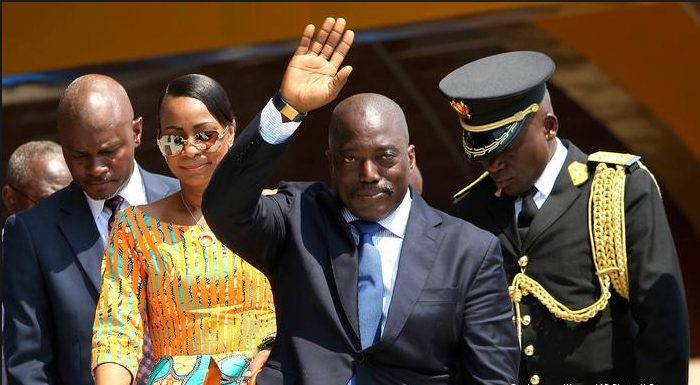
Rivals in DR Congo blame each other for pre-election violence

On Monday, three weeks before a crucial Congo presidential vote, opponents and supporters of Democratic Republic of Congo President Joseph Kabila traded accusations of electoral violence.
The pro-Kabila coalition said opposition supporters attacked a march over the weekend, injuring dozens while opposition leader Felix Tshisekedi’s UDPS party said police detained more than 40 of his supporters in 48 hours.
Kabila’s FCC coalition said “young delinquents, drug addicts who are Union for Democracy and Social Progress (UDPS) supporters” attacked a march for Ramazani Shadary supporters on Saturday in Mbuji Mayi in Eastern Kasai province.
“We have 35 seriously injured and with fractures,” an FCC statement said.
East Kasai governor Alphonse Ngoyi Kasanji on Monday revealed there were 15 wounded treated at a local hospital.
A source at Tshisekedi’s UDPS party said police encircled its headquarters in Mbuji Mayi between Sunday night and Monday morning and detained dozens of his supporters over the weekend.
“Around 20 of our activists were arrested on Saturday and are still in police custody. One of our parliamentary candidates is still reported missing,” regional UDPS representative Denis Kalombo told AFP.
Vincent Ngoyi, a local official, said police had been deployed to the UDPS headquarters in the region for “security reasons” because they were responsible for unrest on Saturday.
Tens of thousands of supporters turned out to welcome Tshisekedi, whose father Etienne was the face of DRC opposition for decades, as he returned to Kinshasa last month to kick off his campaign to replace Kabila.
Rich in diamonds, the Kasai region was caught up in militia violence between September 2016 and mid-2017 after a powerful local chieftain was killed by security forces.
Around 3 000 people died in the violence and 1.4 million more were displaced by fighting.
Election preparations are also being tested in eastern DR Congo, where the army is fighting militant and inter-ethnic violence and dealing with a deadly Ebola outbreak.
Western powers are closely watching the December 23 election in the mineral-wealthy former Belgian colony that has never seen a peaceful transition of power since its 1960 independence.
Under international pressure, Kabila agreed to step aside, but critics worry he will engineer a victory for his handpicked successor, former interior minister Emmanuel Ramazani Shadary.






